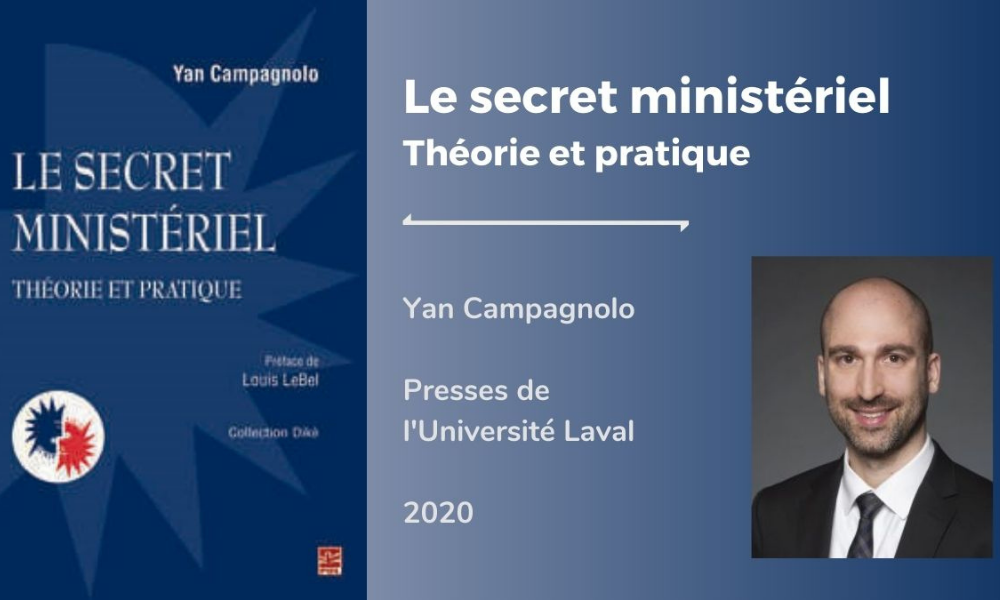
Ottawa's Yan Campagnolo among those honoured

Professors at Concordia University and Laval University have received prizes in the monograph category of the Quebec Bar Foundation’s 2021 legal writing competition, while professors at the University of Ottawa and the University of Montreal received honourable mentions.
The prizes for the best monographs went to the following:
The following monographs received honourable mentions:
The Quebec Bar Foundation, which has held a legal writing competition annually since 1984, aims to recognize legal writers who have distinguished themselves through their contributions to legal discourse.
A news release from the Common Law Section congratulated Campagnolo on the achievement. Le secret ministériel was a runner-up for the 2020 Walter Owen Book Prize awarded by the Canadian Foundation for Legal Research, and aims to be the first complete examination of the topic of cabinet secrecy in Canada. The book discusses the inherent tension between government transparency and the necessity for preserving confidentiality among cabinet proceedings. It analyzes the subject of cabinet secrecy from historical, theoretical and practical perspectives and refers to the British, Australian, New Zealand and Canadian cabinets.
Campagnolo earned civil law and common law degrees from the University of Ottawa, where he graduated summa cum laude; a master’s degree in public international law from the University of Cambridge; and a doctorate degree in constitutional law from the University of Toronto, with the support of the Social Sciences and Humanities Research Council, said his biography on the University of Ottawa’s website.
Campagnolo has served as a law clerk to Justice Morris Fish of the Supreme Court of Canada; as an assistant professor, assistant dean and co-director of graduate studies in law at the University of Ottawa’s Civil Law Section; and as an assistant professor then as an associate professor at the Common Law Section.
Campagnolo focused on the concept of cabinet secrecy for his doctoral thesis at the University of Toronto. He got the idea from his experience working as a lawyer in the Privy Council Office when the public inquiry into the Mulroney-Schreiber affair was being discussed in the media.
Campagnolo wanted to clarify the concept of cabinet secrecy and to reconsider its framework, given that he found the concept — which is based on constitutional conventions, on common law and on obscure provisions of federal legislation — to be vague and realized that there was a lack of effective recourse against claims of cabinet immunity.